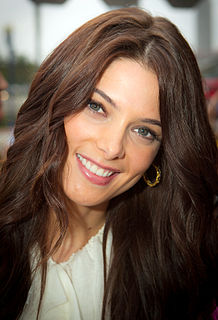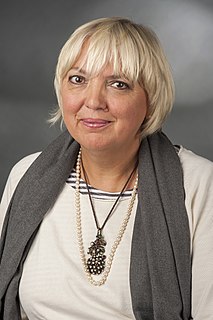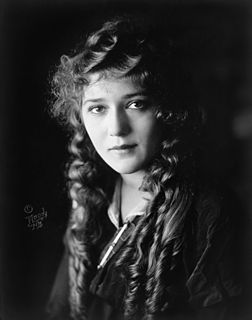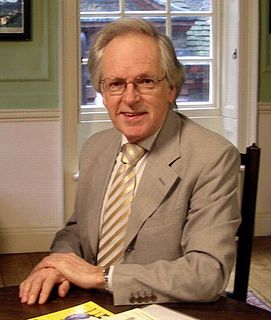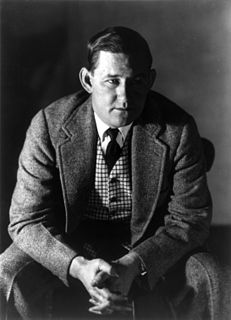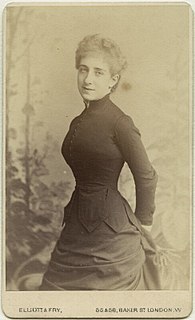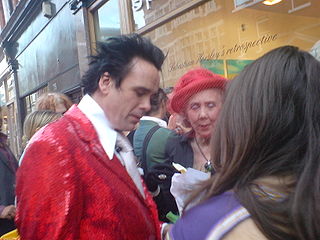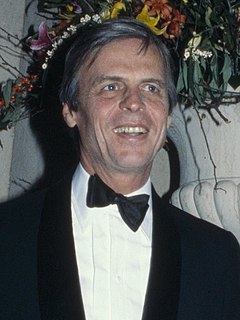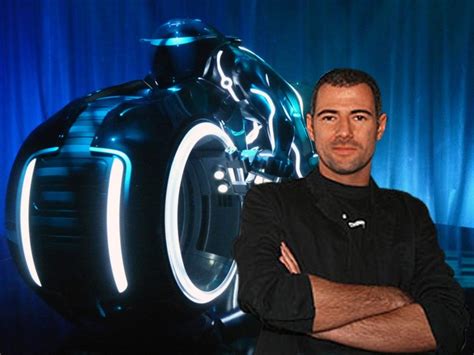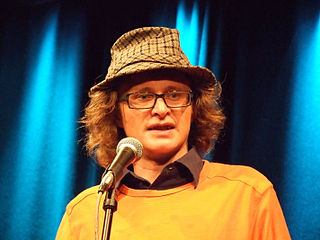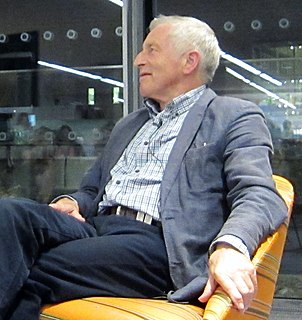Top 111 Wilde Quotes & Sayings - Page 2
Explore popular Wilde quotes.
Last updated on April 16, 2025.
We all exist in similar systems that mirror and reproduce the same American culture for the most part. What Oscar Wilde said about the lucky author who has a non-literary day job no longer holds, if it ever did. Artists seek validation as much as they seek money. The creation and invention of culture and canon is where most of the trouble lies.
Reading the very best writers—let us say Homer, Dante, Shakespeare, Tolstoy—is not going to make us better citizens. Art is perfectly useless, according to the sublime Oscar Wilde, who was right about everything. He also told us that all bad poetry is sincere. Had I the power to do so, I would command that these words be engraved above every gate at every university, so that each student might ponder the splendor of the insight.
By the respectable terms of the modern literary profession, novelists do not preach. And, in fact, there has probably not been a less respectable novelist among the irrefutably enduring writers of our time than Ayn Rand: philosopher queen of the best-seller lists in the forties and fifties, cult phenomenon and nationally declared threat to public morality in the sixties, guru to the Libertarians and to White House economic policy in the seventies, and a continuing exemplar or Wilde's tragic observation that more than half of modern culture depends on what one shouldn't read.
Heather Badcock meant no harm. She never did mean harm, but there is no doubt that people like Heather Badcock (and like my old friend Alison Wilde), are capable of doing a lot of harm because they lack - not kindness, they have kindness - but any real consideration for the way their actions may affect other people. She though always of what an action meant to her, never sparing a thought to what it might mean to somebody else.
Repression is good for cultural achievement. Let's face it. What are gay boys going to be like? I always like to say the 19th-century gay boy was Oscar Wilde, the 20th-century gay boy was Stonewall and ACT UP. And in the 21st century, we have blocking people on Grindr. That's what we've accomplished. Without some kind of traction.
It completely sickens me what our culture is doing to women. Last week I wore a big top and little shorts and a bunch of stuff came out saying I was without pants. 'The No-Pants Look,' it said. And I didn't go out without pants, I had shorts on... If Olivia Wilde had gone to a party with a big silky top and little shorts she might have been told her outfit was cute... What it was really: 'Why did you show us your thighs?'
What other developed democracy has such a ridiculous and squalid history of intolerance? From the imprisonment and roasting of heretics, witches and poachers, to the censorship of literature, art and television: from St Alban through Wilde, Joyce and Lawrence I think we can point with pride to as grim a catalogue of intemperate, bigoted repression as any nation on earth.
We wish we could have been there for you. We didn't have many role models of our own--we latched on to the foolish love of Oscar Wilde and the well-versed longing of Walt Whitman because nobody else was there to show us an untortured path. We were going to be your role models. We were going to give you art and music and confidence and shelter and a much better world. Those who survived lived to do this. But we haven't been there for you. We've been here. Watching as you become the role models.
Wilhelmine Germany was hostile to the expression of same-sex love - and, of course, Mann would have known of the fate of Oscar Wilde. His early reading of Platen's poetry, and, probably when he was in his early twenties, of Platen's diaries, introduced him to a form of sexual expression he found profoundly congenial. It's not quite Platonic.
But here's the thing about being honest: All the liars HATE you for it, and most of the people in the world are liars. They lie to their bosses, they lie to their families, they lie to themselves, they lie so much they don't even know they're lying anymore. If you have the courage to be honest even a little bit all those people will hate you for it, because their lie is reflected in your honesty. Oscar Wilde wasn't kidding when he said, "If you want to tell people the truth, make them laugh, otherwise they'll kill you."
In English, you can find writers with a wonderful sense of humor, like Oscar Wilde. But in the French language, this is very special, and de Sade is one of the very brave writers with a sense of humor. But most people don't understand that. When they read de Sade, they take it seriously. They say, "Oh, what an awful man!" He is really a very unknown writer.
The ways in which Oscar Wilde was attacking the Romantics that preceded him, and the Romantic ideas that preceded him, were very similar to what the glam-rockers, particularly Bowie and Bryan Ferry, were attacking in the earnestness of '60s culture. Trying to shock, but with wit, cleverness, and homosexuality.
One of the traps of adolescence is the sort of paranoid resentment that somehow you're never going to match up and that everybody else's life is going to be better and finer and fuller. That everyone else attended some secret lesson in which how to live was taught and you had a dental appointment that day, or you were somehow not invited. And the point of great writers like Wilde is that they make that invitation to you.
My toils in the quotation field have led me to formulate two or three laws about the way people use and abuse quotations. My first law is: When in doubt, ascribe all quotations to Bernard Shaw - which I don't mean to be taken literally, but as a general observation of the habit people have of attaching remarks to the nearest obvious speaker. Churchill, Wilde, Orson Welles and Alexander Woollcott are other useful figures upon whom to father remarks when you don't know who really said them.
I don't like ordinary girls. But a girl who would kill a guy to make him hers and then kiss his still-warm lips... a girl like Oscar Wilde's Salome They drive me crazy. Like Kiyohime turning into a snake to chase her man or the grocery girl Oshichi who set fire to a building just to see hers one more time. I want to be loved like that be obsessed over be hated.
For me, hipsterism is for one to appropriate the codes of a social class or another milieu that wasn't theirs originally, in order to define their personality through something different and unique. Which is why a lot of hipsters live downtown, and they're dressed as farmers. Then you have the Oscar Wilde hipster: the dandy.
Oscar Wilde quite rightly said, 'All art is useless'. And that may sound as if that means it's something not worth supporting. But if you actually think about it, the things that matter in life are useless. Love is useless. Wine is useless. Art is the love and wine of life. It is the extra, without which life is not worth living.
When you do these things, you sort of take the journey. The journey is all about how I can interweave the Oscar Wilde story, the story of Salome, the play itself and what it is, what it contains, and my journey as an actor, as a director, as a filmmaker, as a person struggling with whatever I'm struggling with - my own celebrity, my own life. This is semi-autobiographical in terms of my commitment to this kind of thing.
Money as such is, as Oscar Wilde said, perfectly useless. You can't eat it, drink it, shelter yourself from the cold with it, wear it, or make love with it unless deeply disturbed. In and of itself, it has no emotions, no mind, and no conscience. It doesn't put out flowers or have children, and it makes a lousy pet. It has meaning only when it circulates, and is exchanged for other things; and money doesn't do that for itself. People do that, using money as a symbolic token.
The sad fact is that I love Dickens and Donne and Keats and Eliot and Forster and Conrad and Fitzgerald and Kafka and Wilde and Orwell and Waugh and Marvell and Greene and Sterne and Shakespeare and Webster and Swift and Yeats and Joyce and Hardy, really, really love them. It’s just that they don’t love me back.
Back in Kansas City, I associated Harvard with sort of gnarly guys who wore capes for effect in a kind of Oscar Wilde scene. Even though I also knew there was such a thing as the Harvard-Yale game, I was still a little surprised that Harvard had a football team. I just assumed if there were such a thing as gay people, that they were nothing like us. Little did I know that probably half the swim team at Yale was gay.
You know, boy versus girl. But she's a tough warrior, so I almost treated it like unisex. But it makes a difference how tall the actors are, because I needed to know that if Olivia Wilde sits in a car that the director, Joe Kosinski can still get the angle he wants, as opposed to maybe in another vehicle than Jeff Bridges has to sit in. So that was fascinating. Because in a real car you change everything and adjust it. But here you have one shot.
Eclectic is a word that appears almost as much as the word smarmy in rock journalism and I've come to the fact, just as a personal side, this reminds of Oscar Wilde's insight that criticism is the highest form of autobiography. I think that's exactly what rock journalism has attempted to do, to celebrate its autobiography at my expense.
Developing characters is a collective process, on one hand; it's an individual process on the other. The truth is rarely pure and never simple, as dear Oscar Wilde would say. A great of it, of course, is, you collect as much information as you can and then you put it into the mulberry of your mind and hope that you come up with a decent wine. Sometimes you do; sometimes you don't.
For me, a male image that I'm really moved by is somewhere between of Oscar Wilde type of a male: the fop, the long hair, the suits, too witty for his own good, incredibly smart, scathingly funny - all that. But then my other ideal is more like the Buddhist monk - the shaved head, actually someone who sublimates their sexuality.
A ready means of being cherished by the English is to adopt the simple expedient of living a long time. I have little doubt that if, say, Oscar Wilde had lived into his nineties, instead of dying in his forties, he would have been considered a benign, distinguished figure suitable to preside at a school prize-giving or to instruct and exhort scout masters at their jamborees. He might even have been knighted.
When I was young, we thought that Oscar Wilde was a great nobleman who had thrown his life away for love. Nothing could be less true. He slept with East Enders who were procured for him by Lord Alfred Douglas. He knew them only 'in Braille' - the curtains were never drawn back in the rooms in Oxford where he met those boys. It was the most sordid life you can imagine. And he was bleating about love and dragging the fair name of Mr. Plato into the trial - after a life like that?






